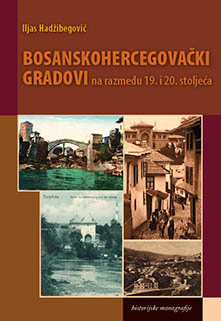

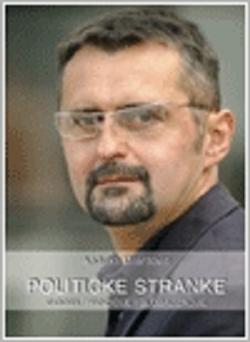
Keywords: political parties; political parties system; globalization; political transition; democracy; political pluralism; totalitarianism; post-totalitarianism; liberalism; right-wing parties
This book depicts the complex past and present evolution of political parties. In the first chapter, a social and political origin of political parties is discussed. In the second one, the complex nature of relations between political parties and political systems, while in the third chapter the book portrays transition to democracy. In the fourth chapter a more empiric, case study-based approach is used and different transition experiences are analysed. The final chapter discusses the transformation of political parties in the age of globalization, using a framework of transformationism and the concept of second modernity. In this part, the European Union serves as an empirical example.
More...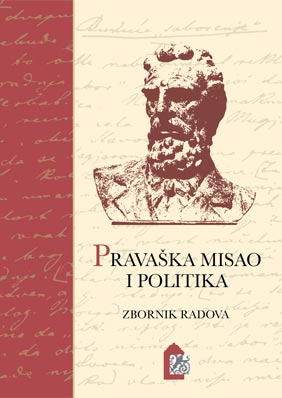
Rightist economic activity changed from case to case; it was strongly influenced by the regulations of the Croat-Hungarian Agreement of 1868. The article divides the economic management of the Party of Right into three time periods: 1. 1861-1871. Kvaternik writes his well known work Hrvatski glavničar (Croatian Capitalist) which points to the necessity of creating domestic capital and stimulating its growth with a stock exchange. His ideas did not find fertile ground because the members of the party did not recognize their importance. 2. 1878-1894 Following the quiet that descended upon Rightist ranks after the Rakovica uprising of 1871, the party activists returned to the political stage in 1878. Until 1890, F. Folnegović was the most important individual in the party concerned with economic matters. His efforts enabled the publication of official party organs and the construction of the Starčević Dom (Starčević House). 3. 1895-1914 In 1890, J. Frank joined the Party of Right. Even though he never established a particular economic programme for strengthening the Pure Party of Right, he can largely be credited for the fact that the coffers of the Party began to receive important contributions which he invested into party activities, but which he also used to initiate the development of industry and banking (for e.g., “Danica” in Koprivnica). During the term of P. Rauch as Ban, work was begun on establishing a Department of Economy for the Land Government, which in 1914 resulted in the creation of the fourth branch of this government, the Department of National Economy, which, even if it came too late, changed the very nature of the Croat-Hungarian Agreement.
More...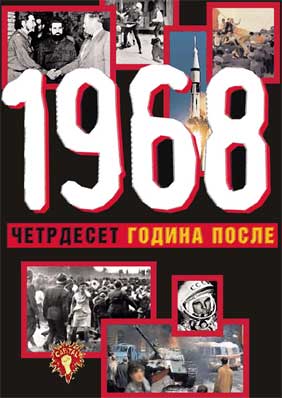
Selected Bibliography on 1968
More...Keywords: Kingdom of Yugoslavia; 1929-1941; Leon Novak; Leon Novak - Feliks;biography;communist; Association of Young Intellectuals; textile workers’ strike of 1936; resistance in Maribor in 1941
In her contribution the author focuses on the political activity of the composer and communist Leon Novak from Maribor in the 1930s and during the first months of the German occupation. In the spring of 1941, after the occupation authorities had been established in Maribor, he became one of the organisers of the Partisan resistance. In the autumn of 1941 Gestapo arrested him and he was shot after being severely tortured. In the Party documents his role was labelled as treacherous, which is why Novak was completely overlooked by the post-war historiography. In her contribution the author focuses especially on Novak’s activities in the Association of Young Intellectuals (1935-1936), his role in the organisation of the large textile strike in Maribor (1936), his political activities related to the National Assembly elections (1938), and his underground activities in the months following the occupation of Maribor until his death. The contribution is based on the preserved archive sources, memorial literature and oral sources.
More...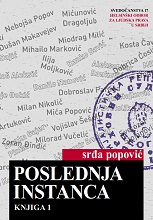
Keywords: censorship;censorship in communist countries;communism and democracy;dissident intellectuals;dissident journalist;political trials; law in communism;propaganda;sfr yugoslavia;
More...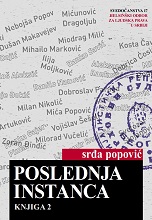
Keywords: censorship;censorship in communist countries;communism and democracy;dissident intellectuals;dissident journalist;political trials; law in communism;propaganda;sfr yugoslavia;
More...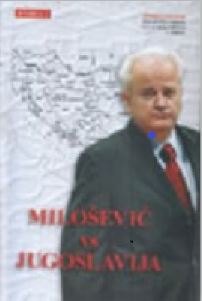
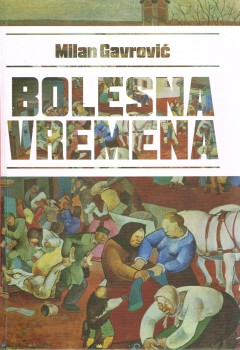
Keywords: war crimes in Croatia; media and war; Croatian War of Independence; war in Yugoslavia; ethnic cleansing;
Moto za ovu knjigu preuzeo sam od »Duhovne republike Zicer«, osnovane u klubu Zicer u Novom Sadu još godine 1992. s ciljem da spriječi mobilizaciju za rat koji se vodio u Hrvatskoj. Jugoslavija je tada već bila raskomadana, bile su prekinute komunikacije između novih država, a sve informacije strogo kontrolirane i cenzurirane. Tako sam za tu »republiku«, koja je bila dio širokog antiratnog pokreta u Vojvodini, doznao tek u ljeto 2014. iz tjednika Novosti, koji je prenio dio teksta iz projeka »Living Together« (Živjeti zajedno), financiranog od Europske unije. Naravno, patetična optužba tog mota nije sasvim pravedna, točnije, ne odnosi se na sve ljude. Nasilje, zločini i laži proizveli su kolektivnu paranoju, a nacionalizam je jedan od njenih najstrašnijih oblika. Osim toga čini se kako je u prirodi čovjeka da kao normalna prihvaća pravila uspostavljena u sredini u kojoj živi, iako se ona ponekad mijenjaju nevjerojatnom brzinom. Dra-matičan primjer je njemačka zdravstvena služba koja je već na početku Hitlerove vladavine, /kao normalni dio brige o zdravlju nacije, prihvatila kastraciju svakog tko je bio proglašen psihičkim bolesnikom. Ponašanje mnogih ljudi kod nas, u proteklih četvrt stoljeća, slijedilo je isti obrazac. Ali za one koji se smatraju mislećim dijelom nacije i koji su imali prilike govoriti, gornji moto ima punu vrijednost. Nije zanemariv ni broj onih koji su toga bili svjesni, a nisu šutjeli, iako su bili izloženi raznim pritiscima i šikaniranjima. Istovremeno su vladari novih država počeli kontrolirati sve medije i javne tribine na kojima su postali dobrodošli samo zagovornici nacionalističke mržnje.
More...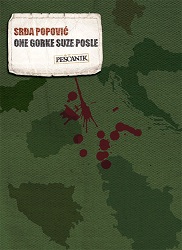
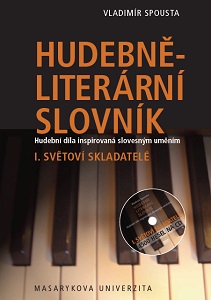
Keywords: Music-literary dictionary; Czech lexicographic literature; Music; Verbal arts; literary works;
The music-literary dictionary of world’s composers is a contribution to Czech lexicographic literature as it brings a new perspective on the world’s music. It exclusively focuses on composers who were inspired by verbal arts. Deep correspondence between music and literary work is often hidden or is considered as a mere coincidence. It is therefore praiseworthy that the author systematically emphasises and records this interconnection. The dictionary serves as a remarkably plentiful source of information for every admirer of art.
More...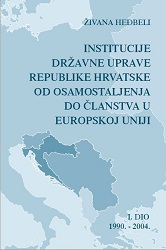
Keywords: Croatia; state administration; institutions; independence; EU accession; offices; ministries; parliament; government; 90s;
The subject of this book is the history of the Republic of Croatia state administration institutions, in the period between1990, when Croatia gained its independence, until June 18, 2004, when European Council promoted Croatia’s status to official candidate for the European Union membership. The book covers institutions of Croatian political system: the Parliament, President of the Republic of Croatia, the government and state administration bodies. The introduction explains basic terms and the reasons why the book covers only, strictly speaking, state administration bodies. The book includes neither public sector bodies nor civil defence and military forces and the police. Familiarity with the history and scope of activities of an institution is the starting point of archives’ and archivists’ overall work, and of providing precise and meaningful scientific information to users of archival records as well. The task of archival science is to study the organization and functions of those bodies the work and actions of which created archival and current records. Knowledge about the history of institutions is a precondition for any archival professional work. Croatian archival science produced almost no papers on this subject up until now. Some data can be found at the Croatian Information Documentation Referral Agency (HIDRA) web pages. The second chapter discusses, on the basis of published legal sources and literature, the context in which Croatian state administration institutions work. The process of Croatia’s gaining of independence is also explained, as well as the state’s development and changes in the Constitution, which directly determine names of the highest institutions and scope of their jurisdiction. System and changes of the state administration, changes of organization and domains of ministries and state administrative organizations are presented in theirs totality on the basis of published, relevant legal regulations, as well as regulations on high officials, officers and employees. The third chapter analyses the development, legislative and jurisdiction of the Croatian Parliament and its chambers or councils, the government and each of its offices and some of its commissions, the Presidency/President of the Republic of Croatia, their organization and theirs organizational bodies. The exact dates of changes of institution’s names, relevant laws, jurisdictions and changes of jurisdictions are determined, as well as organizational bodies and theirs changes, their founding and abolition. The fourth chapter analyses the development, relevant legislative and jurisdiction of ministries, theirs organization and their organizational bodies. Each existing ministry is discussed separately, exact dates of changes of ministry’s names, its founding and abolition, relevant laws, jurisdictions and changes of jurisdictions are determined, as well as organizational bodies and their changes, founding and abolition. The fifth chapter analyses each state administration organizations and central state offices, exact dates of changes of institution’s names, their founding and abolition, relevant laws, jurisdictions and changes of jurisdictions are determined, as well as organizational bodies and their changes, founding and abolition. The sixth chapter analyses state administration in counties, towns and municipalities, as well as various bodies which are not central state administration bodies or government offices, but perform executive or administrative authority tasks. Local and regional government and self-government, counties, towns and municipalities and, at a certain period, districts, their changes and relevant laws are presented in their entirety, as well as their jurisdictions. General conclusion regarding Croatian state administration institutions is that state organization is developed or complex. Special conditions of gaining independence and Croatia’s development as a state influenced the development and growth of state administration institutions. Establishment of Croatia as an independent state, faced Croatia, for the very first time, with the task to create its own, integral state administration system. Since independence presupposes the necessity to form and consolidate all units of the administrative system which are typical for an independent state, after it was constituted, Croatia founded those institutions, which did not existed in up-to-then Socialistic Republic of Croatia, and which do exist in other modern states. Development of Croatia is extremely dynamic. When considering the overall situation, as well as particular periods, there are many diver sified institutions. The very number of ministries and bureaus/directorates varies a lot, due to frequent changes: with ministries from fourteen to nineteen, and with bureaus from three to twelve. State administration institutions are created as a direct answer to new circumstances or as a form of overcoming vital tasks. Certainly, when the activates they performed is not so important any more so as to be performed by an independent body, certain institution cease to exist. With the development of a society, state administration objectives, its organization and manner of performing tasks change. There is a shift from objectives of power to objectives of service, that is to the activities that serve to accomplish and fulfil the citizens’ interests. Administrative functions become differentiated in the course of time. From tasks that were unique at the beginning and performed by a single administrative institution, certain parts are divided into individual tasks performed by separate organizations, which leads to vertical and horizontal differentiation of administration. There has been, up to now, no work that would deal with the history of institutions and Croatian state administration organization in its entirety, from 1990, the year when Croatia gained its independence, until June 18, 2004. For this reason, description of Croatian political system, the Parliament, the President of the Republic, the government and state administration bodies, will serve as systematized knowledge and understanding to all who participate in administration work, to archivists, administrative lawyers, historians, political scientists, sociologists, to students and scholars of the mentioned sciences, as well as to present and future users of archival records. The book offers materials relevant for a more comprehensive study of a large number of questions which constitute the issue of development of the Republic of Croatia and removes the need for future research to deal with the overall history of Croatian institutions, enabling that research to only deal with narrower areas which are more significant in practice. It also enables and provides a starting point for studying the rest of the bodies financed from the state budget – primarily public sector institutions or all bodies through which Croatia fulfils its rights and duties. The book provides the starting point for further work on compilation, whether in a classical or in the form of a data base, of lists of all sources significant for the history of institutions. History of state administration institutions reflects the creation and specific development of Croatia in a specific socio-historical and economic context. Meeting the criteria which are preconditions for Croatia’s EU accession in a certain way means suspension of domain and authorities of political system and state administration institutions which existed from 1900 to 2004, which is why they can be considered historical. The book includes footnotes, appendices – such as indexes of institutions, diplomatic missions and consular representations, high officials and commissioners, lists of abbreviations, bibliography and legal sources. The index of institutions lists both abolished and existing councils, commissions, committees and other bodies which are not separately analysed in the text.
More...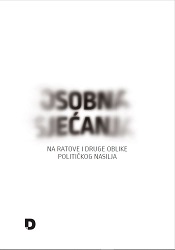
Keywords: Croatia; 20th century; history; Stara Gradiška; camps; holocaust;
Mnogo je razloga zbog kojih pisati o Staroj Gradiški nije nimalo jednostavno, niti lagano. Kako je napisano u predgovoru knjige Stara Gradiška, povjesničara Vjekoslava Žugaja: „…iz jednostavnog razloga što sinonim Stare Gradiške nije njena historiografija u suhoparnome nizanju događaja po slijedu godine na tom hrvatskom mikro lokalitetu, nego ono što Stara Gradiška predstavlja u onom suptilnijem, sasvim određenom smislu. U svom određenju dugostoljetnog kazimata ta geografska lokacija i ime dobivaju značaj.“
More...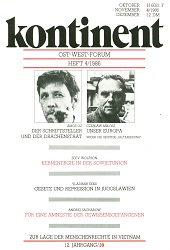
LARISSA TSCHUKAJEWA: “We miss each other so much!” Open letter // CZESŁAW MIŁOSZ: Our Europe // GERMAN ANDREJEW: Looking for the last questions. On the philosophy of Lev Schestov // ZEEV WOLFSON: Nuclear energy in the Soviet Union. Ecological and other aspects // VLADIMIR ŠEKS: Law and repression in Yugoslavia // PATRICK MURPHY: Better wages for better work? // ELENA BONNER: The hidden cameras of the KGB // RAISSA BERG: Barbarians on the ruins of civilization // BORIS WEIL: Fled to the West. A new genre of novels in the USSR // AMOS OZ: The writer and the dragon state // ERNST NEßWESTNYJ: Socialist realism // LEONID TSCHERTKOW: The death of the poet // VIKTOR WOROSZYLSKI: Poems // ANDREJ SACHAROW: For an amnesty for prisoners of conscience. Letter to Mikhail Gorbachev // BORIS ALTSCHULER: A Means of Isolation by Sakharov // JURIJ MEDWEDKOW: Against peace initiatives with the stick of power. Appeal to the participants of the XXVII. CPSU party congresses // On the human rights situation in Vietnam
More...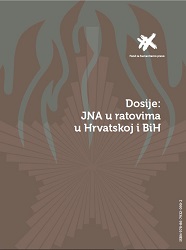
Keywords: Yugoslav National Army; Yugoslav wars;War in Bosna and Herzegovina;War in Croatia;war crimes in Yugoslavia;civilian victims;
The topic of the 10th Dossier of the Humanitarian Law Center (HLC) is the role of the Yugoslav People's Army (JNA) in the wars in Croatia and Bosnia and Herzegovina (BiH) and its transformation from a Yugoslav to a Serbian army. This is the largest HLC file to date, covering the period from the late 1980s until May 1992 and deals with the preparation of the JNA and political structures of SFRY and Serbia for wars, as well as the JNA's participation in conflicts and its contribution to the realization of war goals of the leadership of the Republic of Serbia, the Republic of Serbian Krajina and the Republic of Srpska. The Dossier lists and describes in detail examples of military actions from 1991 in which the JNA committed war crimes or prepared the ground for them to be committed by Serb units with which it worked together. Evidence was presented based on documents and witness statements about indiscriminate shelling of Croatian cities (Dubrovnik, Vukovar, Zadar, Šibenik) and attacks on Croatian territories claimed by the Serbian military, during which numerous crimes were committed against Croatian and other non-Serb civilians. occupied territory ethnically cleansed. That part of the Dossier also contains information on places of detention in Croatia and Serbia under the control of the JNA, where crimes against arrested Croats were committed.
More...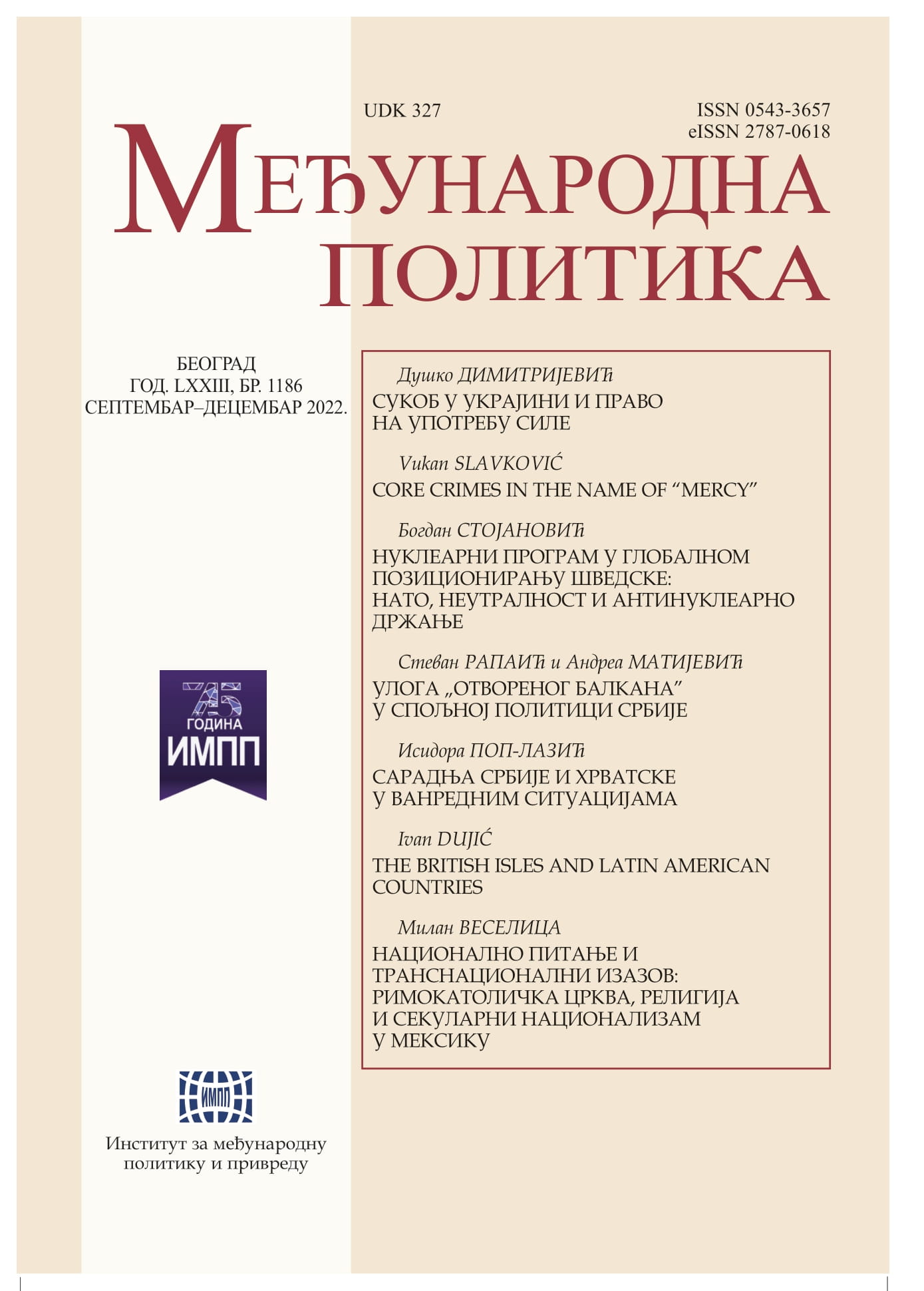
Keywords: Mexico; nationalism; religion; Roman Catholic Church; secularism; civil religion; drug cartels
Аuthor examines the relationship between religion and nationalism in Mexico from independence until today. Mexico is a country that, after gaining independence, had established the Catholicism as the state religion and a model ofreligious nationalism, and then with the liberal Constitution of 1857 and the revolutionary Constitution of 1917 had separated the Church and the State and established a model of secular nationalism based on secularism and anti-clericalism. The author raises the twofold research question: what the nature of secular nationalism looks like after a period of “thawing” of frozen relations during the 1990s and whether the unstable form indicates a gradual transition to a model of civil-religious nationalism? The aim of the paper is to point out the changed character of nationalism, the most important identity and state-building characteristic of Mexico, and to offer a prediction of the development trend of the relationship between religion and nationalism in the future of Mexico. Because there is no prospect of secular nationalism being abandoned in the nearfuture, its real provocateurs are drug cartels, which, as a “state within a state”, tend to build their own form of religion. Аuthor predicts that the Roman Catholic Church will respond to it, equally as a national and transnational actor. Its strategy would require the stabilization of secular nationalism, but this time within the limits of “twin toleration” between the Church and government.
More...